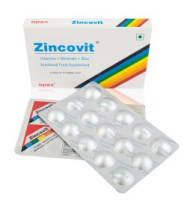NOTICE: unsafe with : Alcohol
USED FOR:
Oedema
Hypertension
COMPOSITION:
Torasemide (10mg)
Therapeutic Uses:
cardiac

CAUTION
Taking Torsamide with alcohol may have additive effects in lowering your blood pressure. You may experience headache, dizziness, lightheadedness, fainting, and/or changes in pulse or heart rate.

PROBABLY SAFE
Dytor 10mg Injection is probably safe to use during pregnancy.Animal studies have shown low or no adverse effect on the foetus, however, there are limited human studies. Please consult your doctor.

Dytor 10mg Injection is probably safe to use during lactation. Limited human data suggests that the drug does not represent a significant risk to the baby.

Dytor 10mg Injection may make you feel dizzy, sleepy, tired, or decrease alertness. If this happens, do not drive.

SAFE
Dytor 10mg Injection is safe to use in patients with kidney disease. No dose adjustment of Dytor 10mg Injection is recommended.However, inform your doctor if you have any kidney disease as the use of Dytor 10mg Injection should be avoided in case you are unable to pass urine or the kidney damage is due to some medicines.

CAUTION
Dytor 10mg Injection should be used with caution in patients with liver disease. Dose adjustment of Dytor 10mg Injection may be needed. Please consult your doctor.
Uses of Dytor Injection
Dytor 10mg Injection is used in the treatment of oedema and hypertension.It treats oedema (fluid overload) associated with heart, liver, kidney or lung disease.
How to use Dytor Injection
Your doctor or nurse will give you this medicine. Kindly do not self administer.
How Dytor Injection works
Dytor 10mg Injection is a loop diuretic. It acts on kidneys and removes excess water and certain electrolytes from the body through urine.
Common Dehydration, Decreased potassium level in blood, Decreased magnesium level in blood, Increased blood uric acid, Hearing loss.
Expert advice for Dytor Injection
Dytor helps removes excess water from your body and lower blood pressure. Take it in the morning with breakfast to avoid getting up at night to urinate. May cause dizziness in the initial days of treatment. Monitor your blood pressure after starting Dytor, and notify your doctor if it hasn't gone down. Notify your doctor if you experience dizziness, tiredness, or muscle weakness that doesn't go away. Take potassium supplements or potassium-rich diet (banana, spinach, coconut water etc) as Dytor can decrease your potassium levels and lead to dehydration. Requires routine blood tests to monitor your kidney function.
Q. Can Dytor cause gout?
Yes, Dytor can cause gout. It increases the blood uric acid levels by increasing its absorption from the kidneys which can cause a gout attack. Inform your doctor if you have hyperuricemia or a history of gout before taking this medicine. Use of Dytor is contraindicated in patients with gout.
Q. Does Dytor raise your blood sugar levels?
Dytor can increase your blood sugar levels. This can worsen your diabetes control and affect your blood and urine sugar tests. Inform your doctor if you are a diabetic before taking Dytor.
Q. Can I use Dytor with spironolactone?
Dytor can be taken with spironolactone. When used together the diuretic effect gets added along with maintaining the blood potassium levels. Dytor is a loop diuretic and causes loss of potassium from your body while Spironolactone is a potassium-sparing diuretic which prevents the loss of potassium.
Q. Does Dytor cause diarrhea?
Diarrhea is a common side effect of Dytor. Other commonly seen gastrointestinal side effects are the loss of appetite, upper abdominal pain, nausea, vomiting, and constipation.
Q. Can I take Dytor with allopurinol?
Dytor can be taken with allopurinol. Dytor can increase uric acid levels and allopurinol lowers uric acid levels. So, allopurinol is given to decrease the hyperuricemic effects of Dytor. However, allopurinol is not safe in patients with renal failure, so may need to be replaced with another similar medicine like febuxostat.
Q. Can I use Dytor in sulfa allergy?
No, Dytor should not be used if you have a history of sulfa allergy or to sulfonamide group of anti-diabetic drugs.
Q. Is Dytor used for weight loss?
Dytor can decrease weight by removing excessive water from your body. However, it is not used for weight loss in obese patients as it does not affect body fat.
Q. Does Dytor cause electrolyte abnormalities?
Yes, Dytor can cause electrolyte abnormalities as it works by removing water and salt from your body. It can decrease the blood potassium, sodium, chloride, magnesium, and calcium levels and increase blood sugar and uric acid levels. It is very important to get electrolytes and kidney function tests done on a regular basis while you are taking this medicine.
Q. Is Dytor safe to use?
Dytor is a safe drug if used in prescribed dose and for prescribed duration as advised by your doctor.
Q. Does Dytor cause hair loss?
Dytor is not known to cause hair loss. Consult your doctor if you have hair loss while you are taking Dytor.
Q. Can Dytor cause kidney failure?
No, Dytor does not cause kidney failure, rather it is used to remove extra fluid from the body (edema) which is caused by conditions such as heart failure, liver disease, and kidney disease.
Q. Can I take Dytor with prednisone?
Dytor can be taken with prednisone. However, when used together, they can lower blood potassium levels (hypokalemia) which can be severe, causing muscle pains or cramps, loss of appetite, weakness, dizziness, or confusion. Inform your doctor if you have these symptoms. Take potassium supplements or foods rich in potassium like orange, lemon or other citrus fruit.
Q. Can I use Dytor with metolazone?
Both Dytor and metolazone are potassium-lowering diuretics. When given together, they can lower blood potassium level (hypokalemia) which can be severe, causing muscle pains or cramps, loss of appetite, weakness, dizziness, or confusion. Inform your doctor if you have these symptoms. Take potassium supplements or foods rich in potassium like orange, lemon or other citrus fruit.
Q. Does Dytor have any serious side effects?
Serious side effects reported with the use of Dytor are atrial fibrillation, ventricular tachycardia, chest pain, diarrhea, digitalis intoxication, gastrointestinal hemorrhage, hyperglycemia, hyperuricemia, hypokalemia, hypotension, hypovolemia, shunt thrombosis, rash, rectal bleeding, and syncope.
Q. Is Dytor useful in the treatment of heart failure?
Yes, Dytor is useful in the treatment of heart failure. It works by removing excess water and salt from your body and decreases the workload on the heart and as well decreases the lung congestion. This helps in improving the function of the heart in these patients.
Q. Can Dytor lower potassium levels?
Dytor can cause dehydration and lower the levels of electrolytes like potassium in your body. You can take potassium supplements or diet rich in potassium (banana, spinach, coconut water etc.) while you are taking this medicine after consulting with your doctor.
Zydus Cadila
₹7.17/ml of Injection Out of stock


 Dytor 10mg Injection
Dytor 10mg Injection  Bookmark
Bookmark





















